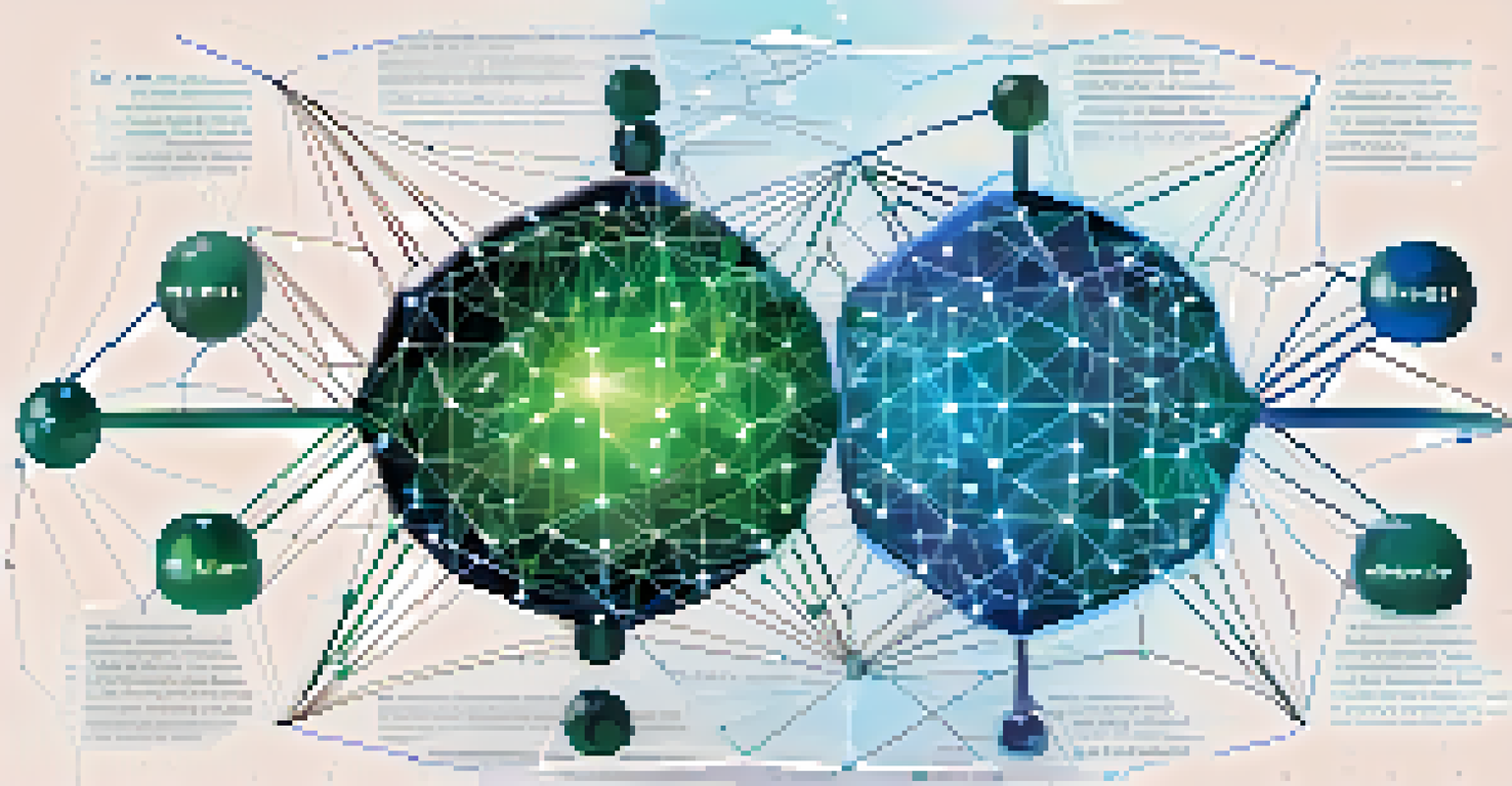Ethics of Machine Learning in Educational Assessment

Understanding Machine Learning in Educational Contexts
Machine learning (ML) is transforming various sectors, including education. In the context of educational assessment, ML algorithms analyze student performance data to provide insights and predictions. This technology can help educators identify learning gaps and tailor instruction to individual needs, making education more personalized and effective.
The goal is to turn data into information, and information into insight.
However, the application of ML in assessments raises crucial ethical questions. For instance, how do we ensure that the algorithms used are fair and unbiased? The data fed into these systems can reflect societal biases, potentially leading to unfair assessments of students from different backgrounds.
To navigate these challenges, it's important to understand both the technology and the context in which it operates. Educators and developers must work together to create systems that are not only effective but also equitable, ensuring that all students have the opportunity to succeed.
The Importance of Data Privacy in Educational Assessments
Data privacy is a cornerstone of ethical machine learning practices, especially in education. When ML tools process student data, they often gather sensitive information, including personal identifiers and academic records. Protecting this data is not just a legal obligation; it's a moral one to safeguard students' privacy.

Educational institutions must implement stringent data protection measures to ensure that student information is handled responsibly. This includes anonymizing data and using encryption techniques to prevent unauthorized access. Moreover, transparency about data usage can build trust among students and parents.
Ethics in Machine Learning Use
The implementation of machine learning in education must prioritize fairness, transparency, and accountability to ensure equitable assessments for all students.
Ultimately, prioritizing data privacy fosters a safer learning environment. When students and educators feel secure about how their information is used, they are more likely to engage with technology-enhanced assessments, leading to better educational outcomes.
Addressing Bias in Machine Learning Algorithms
Bias in machine learning is a significant concern, particularly in educational assessments. If algorithms are trained on biased data, they can perpetuate these biases, leading to unfair evaluations of student performance. This is especially problematic for marginalized groups who may already face systemic inequities.
In the age of information, ignorance is a choice.
To combat this issue, developers need to ensure that the data used for training ML models is representative and inclusive. Regular audits of the algorithms can help identify and mitigate bias, ensuring that all students are assessed fairly. This proactive approach is essential for maintaining integrity in educational assessments.
Moreover, involving diverse stakeholders in the development process can provide valuable perspectives. By including educators, students, and community members, we can create systems that truly reflect the needs of all learners, ultimately promoting equity in education.
Transparency and Accountability in Machine Learning Systems
Transparency is a vital aspect of ethical machine learning practices in education. Stakeholders, including students, parents, and educators, should have a clear understanding of how ML algorithms function and the criteria they use for assessments. This openness can help demystify the technology and build confidence in its use.
Accountability is equally important; systems should be in place to address potential errors or misjudgments made by ML algorithms. If a student feels they have been unfairly assessed, there should be a straightforward process for reviewing and appealing those decisions. This not only protects students but also encourages continuous improvement of the assessment systems.
Data Privacy is Essential
Protecting student data is not only a legal requirement but also a moral obligation to foster trust and security in educational environments.
By fostering a culture of transparency and accountability, educational institutions can ensure that their use of machine learning aligns with ethical standards. This commitment to openness can enhance trust and collaboration among all parties involved in the educational process.
The Role of Educators in Machine Learning Implementations
Educators play a crucial role in the successful implementation of machine learning in assessments. They are the ones who understand the nuances of student learning and can provide context to the data collected by ML systems. Their insights can guide the development of more effective and relevant assessment tools.
Moreover, educators must also advocate for ethical practices in the use of technology. By staying informed about the implications of machine learning, they can ensure that their institutions prioritize fairness, transparency, and accountability. This proactive stance can help mitigate potential risks associated with ML assessments.
Ultimately, collaboration between educators and technology developers is key to harnessing the power of machine learning responsibly. By working together, they can create assessment tools that not only enhance learning outcomes but also uphold ethical standards.
The Impact of Machine Learning on Student Outcomes
Machine learning has the potential to significantly impact student outcomes in various ways. By providing personalized assessments and feedback, ML tools can help identify areas where students may struggle, allowing for timely interventions. This tailored approach can lead to improved learning experiences and academic success.
However, it's important to remain cautious about the over-reliance on technology. While ML can provide valuable insights, it should complement rather than replace traditional assessment methods. Educators must strike a balance to ensure a holistic approach to student evaluation.
Collaboration Enhances Outcomes
Active collaboration among educators, technologists, and policymakers is vital for developing effective and ethical machine learning tools in education.
By continuously assessing the effectiveness of machine learning applications, educational institutions can adapt and improve their assessment strategies. This iterative process is essential for maximizing the positive impact of technology on student outcomes while maintaining ethical standards.
Future Directions for Ethical Machine Learning in Education
As technology continues to evolve, the future of machine learning in educational assessments holds both promise and challenges. Ongoing research and development will be crucial in addressing emerging ethical concerns. This includes refining algorithms to ensure fairness and improving data privacy measures.
Collaboration among educators, technologists, and policymakers will be essential in shaping the future landscape. By creating guidelines and frameworks for ethical machine learning practices, we can ensure that the technology serves the best interests of students and educators alike.

In summary, the journey towards ethical machine learning in education is ongoing. By committing to transparency, accountability, and inclusivity, we can harness the benefits of technology while upholding the values that are fundamental to a just and equitable education system.